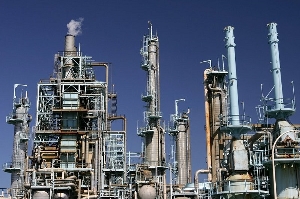I struggle to contain my emotional intelligence whenever I read or listen to former President Mahama and his teeming supporters evocatively beating their chests and claiming credit for building a solid economic foundation before exiting power in 2016.
Since losing power to the NPP in 2016, former President Mahama and his supporters have been bizarrely claiming ownership to Ghana’s auspicious economic outlook.
Apparently, the NDC loyalists have been maintaining all along that the Ghana’s favourable economic standing is due to the advantageous policies and programmes the Mahama’s administration put in place some years back.
Well, let us even agree with the former president that Ghana’s propitious economic foundation is as result of his great efforts.
The crucial question then becomes: would he have claimed the same credit if the economy had sunk deeper and deeper into the mire under Akufo-Addo before the deadly corona virus?
In all these, some of us, as a matter of political rhetoric, can understand the NDC’s 2020 flagbearer, John Dramani Mahama’s and his diehard supporters monstrous gaffe.
That being said, it is intellectually incoherent for any economist to gleefully back the seemingly political gimmicks being thrown about by political propagandists.
In fact, I was extremely taken aback when I heard a certain economist joining the political rhetoric and explicating somewhat bizarrely and incoherently that the policies such as the ‘IMF Policy Credibility’ contributed to the Ghana’s favourable economic growth before the insidious corona virus.
Whilst I am a stranger in the economists world, common sense will tell me that it is only a failed government that will go to the IMF for policy credibility.
Let us therefore be honest, if the erstwhile Mahama administration had built a solid economic foundation from 2009 to 2015, why did the government run to the IMF for policy credibility somewhere in 2015?
Where was the sound economic foundation when 14% economic growth in 2011 dropped to 3.4% by December 2016?
How can anybody claim excellence in economic management when single digit inflation was dragged to 15.4% by December 2016?
What do you call solid economic foundation when the agricultural sector grew in negative consistently?
Where was the favourable economic foundation when the industry sector grew appallingly over the years?
How can anybody beat his/her chest and claim ownership of solid economic foundation when the GDP shrunk from $47 billion in 2011 to $40 billion by December 2016?
Where was the sound economic management when the erstwhile Mahama administration spent profligately and invariably raising Ghana’s debt from $9.5 billion in 2009 to a staggering $122.4 billion by December 2016 with a little to show for?
Where was the solid economic foundation when former President Mahama unabashedly claimed that his administration had edaciously consumed all the meat on the bone?
For argument sake, if Akufo-Addo’s government is building on the ‘solid economic foundation’ by the previous NDC administration, can Mahama also tell the good people of Ghana whether he was able to build on the late Mills legacy?
The fact of the matter is that the late Mills left a sound economic growth of 14% and Mahama reversed it to 3.4%; the late Mills left the agricultural growth of 7.4% and Mahama dragged it to 2.5%; the late Mills single digit inflation was reversed to 15.4%; GDP of $47 billion shrunk to $40 billion by Mahama.
The overarching question then is: if it is indeed possible to build on the good works of one’s predecessor, why did Mahama fail to do so?
Clearly, Ghana’s favourable economic outlook is not down to any efforts by former President Mahama, but it is as a result of the NPP government economic team’s prudent economic management.
No economist can convince some of us that the reduction in interest rate is not a factor in the economic upsurge.
We do not need any economist to tell us that the removal of numerous nuisance taxes is a contributory factor in Ghana’s auspicious economic outlook.
No economist can tell us that the well-accepted policies and programmes such as Planting for Food and Jobs, Planting for Export and Rural Development, Rearing for Food and Jobs, One million dollar per Constituency, One District One Factory, One Dam One Village, and tax reductions have not contributed to the favourable economic growth.
Opinions of Thursday, 20 August 2020
Columnist: K. Badu, U















